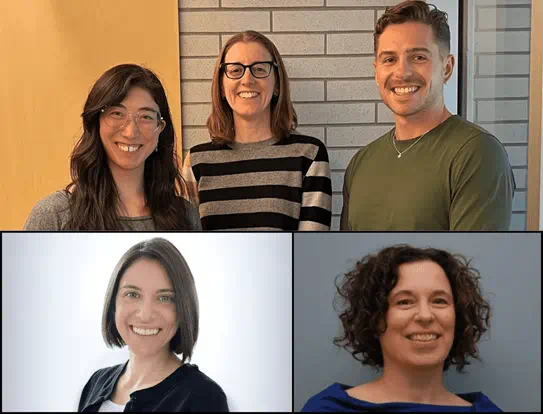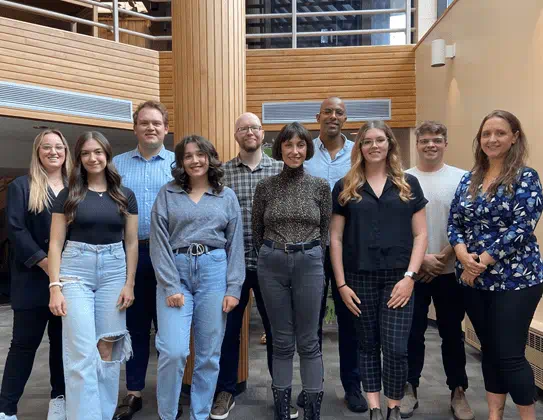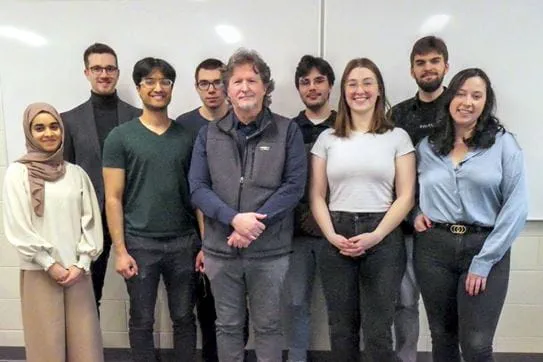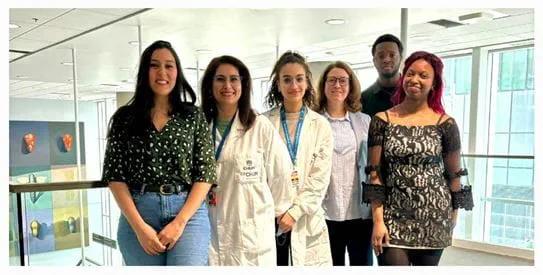Living in a rural or remote location can affect many aspects of a person’s life, like income, environment and job opportunities, which can impact health.
People with cancer and their caregivers in these areas often do not get enough support and information, resulting in poorer health outcomes and lower survival rates. One of the more sensitive factors is the lack of family doctors and other healthcare professionals in rural areas, which leads to significant disparities in healthcare services.
To change this, the Canadian Cancer Society (CCS) is committed to advocating for healthy public policy and funding research focused on advancing health equity for all people in Canada, including those with limited access to healthcare. Below is a selection of 4 CCS-funded projects that aim to improve access to cancer prevention and care for rural and remote communities.
Improving supportive care for people with breast cancer

Dr Kristin Campbell at the University of British Columbia and Dr Sarah Neil-Sztramko at McMaster University believe that where you live should not dictate whether you have access to high-quality, evidence-based supportive cancer care. But with most healthcare providers specializing in supportive care for breast cancer survivors located in large urban cancer centres, those working in small communities have limited resources to expand their knowledge and training.
With support from a CCS Challenge grant, a team led by Drs Campbell and Neil-Sztramko is creating innovative training hubs where healthcare providers who are not located in cities can access mentoring, training and guidance specific to supporting breast cancer survivors in their local communities.
“People living with and beyond cancer deserve access to care regardless of where they live,” they say. “By expanding the capacity of healthcare providers outside of urban settings, we will improve the quality of care for everyone.”
The researchers hope their project will ultimately enhance the overall health and well-being of people living with and beyond cancer.
An app to help cancer survivors overcome insomnia

Insomnia is one of the most common and long-lasting side effects for cancer survivors, and for those living in rural and remote areas, getting a good night’s sleep can be more difficult due to a lack of trained therapists near them. Dr Sheila Garland, a clinical psychologist and leader in the field of cancer survivorship and sleep, is hoping to change that with the use of mobile technology.
With funding from a CCS Emerging Scholar award, a team led by Dr Garland at Memorial University is designing, creating and testing iCANSleep, an app that aims to deliver cognitive behavioural therapy for insomnia at home. To ensure the app will help those who need it, the researchers are also working with cancer survivors and those living with advanced cancers to understand their needs and collect feedback on the app’s design and usability.
“Healthy sleep is necessary for recovery and well-being,” Dr Garland says. “People diagnosed with cancer don’t need the additional burden of insomnia. Using mobile technology will allow us to put evidence-based treatment in the pockets of cancer survivors living in remote or rural communities.”
If successful, the app could be an accessible and easy-to-use way to improve access to insomnia treatments, helping people with cancer and survivors living in rural and remote areas improve their energy levels, mood, cognitive functioning and return to work.
Improving equitable and accessible breast cancer diagnosis

Detecting breast cancer at an early stage can significantly improve the chances of survival, but PhD student Tyson Reimer at the University of Manitoba knows that traditional screening is not always an option for people in Indigenous and remote communities.
To address this issue, the CCS Research Training award recipient is part of a team working to develop an improved method for producing higher-quality images of the breast using microwave imaging. This alternative screening technique is safe and cost-effective, and its relatively small equipment size makes it ideal for rollout to remote communities.
"Breast cancer screening saves lives through early detection,” Reimer says. “Innovative technologies are necessary to bring accessible breast cancer screening and improved health outcomes to remote communities."
If successful, this project could ultimately help reduce health inequity in underserved communities by making breast cancer screening more accessible to everyone in Canada.
Validating new ways of removing polyps and preventing colon cancer

The best way to prevent colorectal cancer is to remove large polyps detected at an early stage. But as the current procedure is only done in large hospitals, Dr Mahsa Taghiakbar from the Centre de recherche du CHUM is working to reduce the need for follow-up visits and more interventions.
If not removed properly, polyps can grow back. With a CCS Research Training award, Dr Taghiakbar is working with a team to find ways to reduce hospital visits by creating treatment benchmarks and standardizing guidelines, which would greatly decrease the financial and physical strains of travelling for people in remote communities.
“We are dedicated to ensuring that the best cancer prevention and care are accessible to all people in Canada,” Dr Taghiakbar says. “We want to ensure that everyone, regardless of location, can receive comprehensive care in fewer visits and at reduced costs for patients and healthcare systems."
The researchers hope to minimize hospital visits, especially for people living in remote communities, ensuring they get the proper care they need.
To learn more about the importance of equitable access to cancer care and prevention for people in these or other underserved communities, check out our research strategy.
